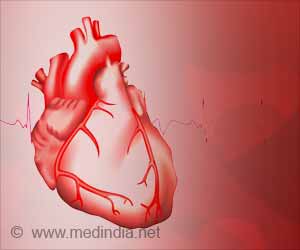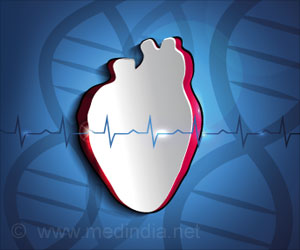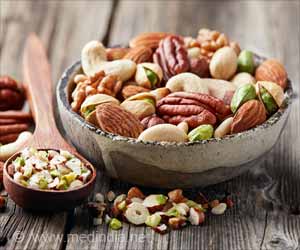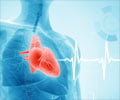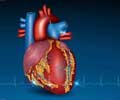World Heart Rhythm Week is being celebrated in the month of June from 3rd to 9th . It aims to generate awareness about heart rhythm disorders and the importance of pulse checks. The key message for 2019 is “We Hear(t) You.”
- World Heart Rhythm Week is being celebrated across the globe on 3-9 June 2019
- It aims to create awareness about arrhythmia among the general public, as well as medical professionals
- The “Key Message” for 2019 is “We Hear(t) You”
Read More..
Objectives of World Heart Rhythm Week
The major objective of World Heart Rhythm Week is to generate awareness and promote a better understanding of heart rhythm disorders. It is an excellent opportunity to raise awareness about how the heart works and what problems can arise when it malfunctions. Being aware of the potential symptoms of arrhythmia will make people aware of when to seek medical help and get timely advice from the doctor to avoid complications.Heart Rhythm Disorders: Facts & Figures
- 2 million people in the UK are affected by arrhythmia
- 100,000 Indians are affected by arrhythmia annually
- 120,000 people experience unexplained loss of consciousness annually – a common sign of arrhythmia
- 55 of 100,000 children suffer from arrhythmia worldwide
- 100,000 sudden cardiac deaths are caused by arrhythmia annually in the UK
- Atrial fibrillation (AF) is the second leading cause of stroke
- 33 million people are affected by AF worldwide
- 2-3 million people are affected by AF in the USA
- 750,000 hospitalizations due to AF occur annually worldwide
- 130,000 deaths due to AF occur annually worldwide
- 500,000 people in the UK and 1 million in the USA have undiagnosed AF
- 18-20 percent of all strokes are caused by AF in the UK
- 25 percent lifetime risk of AF occurs by age 40, which increases risk of stroke by 500 percent
- 60 percent of people are not pulse rhythm aware
- A 30-second pulse check can save a person’s life
How Can You Detect Heart Rhythm Disorders?
Heart rhythm disorders or arrhythmias occur due to a problem in the heart’s electrical conducting system. As a result, the heart rhythm can become too fast (tachycardia) or too slow (bradycardia) or irregular. Atrial fibrillation (AF) is the most common form of arrhythmia and is responsible for 1 in 5 strokes. The 7 most prominent clinical signs of arrhythmia include (1) fainting (syncope), (2) palpitations, (3) dizziness, (4) chest discomfort, (5) shortness of breath, (6) weakness or fatigue, and (7) sweating. Although fainting is very common, it should not be ignored as it can be a sign of an underlying heart rhythm disorder.History of World Heart Rhythm Week
World Heart Rhythm Week was established by the Arrhythmia Alliance in 2004. The Arrhythmia Alliance brings together healthcare professionals, policymakers, charities, patient groups, caregivers, industry, and government representatives, who collectively support innovations in heart rhythm care. Dr. Trudie Lobban MBE, FRCP, is the founder and CEO of Arrhythmia Alliance. The Alliance has its presence in over 40 countries across the globe. Several thousand events take place internationally during the week-long celebrations. Arrhythmia Alliance also organizes the Heart Rhythm Congress (HRC), which is the UK’s largest annual event, solely dedicated to arrhythmia and associated disorders.How is World Heart Rhythm Week Celebrated?
There are many ways to celebrate World Heart Rhythm Week, some of which are briefly highlighted below:- Education: Educating the general public about being “pulse aware” is very important. This will enable people to understand the link between atrial fibrillation (AF) and stroke, how to keep the heart healthy, and how to check their own pulse
- Free Pulse Checks: These are very effective in generating awareness about the importance of regularly checking the pulse. Pulse checks help to pick-up undetected heart rhythm disorders. This simple check takes just 30 seconds, but could save your life!
- Public Lectures: Popular lectures by renowned heart specialists, tailored for the general audience are very much appreciated by the public. These are very effective ways of communicating with people, which will enable them to understand and be aware of the symptoms and signs of heart rhythm disorders and take appropriate preventive measures
- Fundraising: Funds can be raised through various activities such as musical performances, quiz nights, walkathons/marathons, sponsorships, money collections, cake sales, bring-and-buy sales, or tea/coffee parties, among others. These funds can contribute to cardiac research or can be used for improving cardiac care facilities for better treatment of cardiovascular diseases
- Social Media Campaigns: This is a very powerful medium for reaching the public and can be used for posting information, sharing stories, photos, and videos on the topic of arrhythmia. For example, the Arrhythmia Alliance is carrying out a campaign by regularly posting Tweets on Twitter
- Posters & Banners: Displaying posters and banners at strategic locations, such as community centers, schools, colleges, and hospitals, is very effective for informing the public about the events taking place during the week-long awareness program
- Information Dissemination: Information on arrhythmia can be disseminated by distributing pamphlets and leaflets at prominent public places such as train stations, bus stands, markets, shopping malls, and parks, which can help generate awareness
- Media Coverage: The media has an important role to play in awareness generation by providing coverage of the various events taking place throughout the week. Publication of feature articles on heart rhythm disorders in newspapers and magazines also help. Moreover, hosting chat shows and interviews of celebrities on TV or radio are extremely effective in spreading the message
A Snapshot of Two World Heart Rhythm Week Events in UK and India
A glimpse of two annual events celebrating World Heart Rhythm Week in the UK and India are given below:- British Parliament Event: The Annual World Heart Rhythm Week Parliamentary Event is celebrated every year at the House of Commons in London. In this event, the All-Party Parliamentary Group on Arrhythmias (APPG-Arrhythmias) address various policy issues impacting heart rhythm disorders, in order to bring about positive policy changes
- Chennai Event: The Madras Medical Mission and the Arrhythmia Heart Failure Academy in Chennai jointly celebrate the World Heart Rhythm Week through various activities including CMEs for medical professionals, walkathons at Marina beach, arrhythmia awareness talks, musical performances, skits, and infotainment programs for arrhythmia patients
AliveCor Kardia Mobile ECG Device: A New Innovation by the NHS, UK
Mobile electrocardiograph (ECG) devices are nowadays used for detecting heart rhythm disorders, which checks the heart rhythm and confirms if it’s normal. An example is the AliveCor Kardia Mobile ECG device developed by the National Health Service (NHS), UK, which instantly analyzes and interprets heart recordings, so that AF, bradycardia, tachycardia or normal heart rhythm can be immediately detected. Patients just have to put their fingers on the touch-pad of the device, linked to a smartphone or tab, and instantaneously a reading is generated which tells whether the person is at risk of AF so that prompt treatment can be initiated.Health Tips for Preventing Arrhythmia
- Diet: A healthy, nutritious, and balanced diet with less oil, fat and salt is important for keeping the heart healthy
- Exercise: Regular exercise keeps the heart strong and reduces the chances of any heart problems. Cardio exercises such as jumping jacks, squat jumps, skipping, and jogging are particularly helpful
- Stress Relief: Stress can produce symptoms like angina. Therefore, relieving stress is crucial for keeping the heart in pristine condition. Some types of de-stressing techniques include yoga, meditation, Pranayama, and Reiki, among others
- Healthy Lifestyle: Adopting a healthy lifestyle is important for keeping the heart healthy. Therefore, chemicals that can elicit irregular heartbeats should be avoided. These include caffeine, tobacco, alcohol, and appetite suppressants
- Weight Control: Maintaining a healthy weight is very important, as being overweight can increase the risk of heart disease
- Sleep: Getting adequate sleep is vital for repairing and rejuvenating the body. It helps the body to recover from the stresses and strains experienced during the day
References:
- World Heart Rhythm Week - (http://www.heartrhythmalliance.org/aa/uk/heart-rhythm-week)
- About Atrial Fibrillation and Stroke - (https://doi.org/10.1016/S0140-6736(16)31412-X)
- Arrhythmia Alliance - Know Your Pulse - (http://www.heartrhythmalliance.org/aa/uk/know-your-pulse/)
- World Heart Rhythm Week 2017 - (www.heartrhythmweek.org)
Source-Medindia


